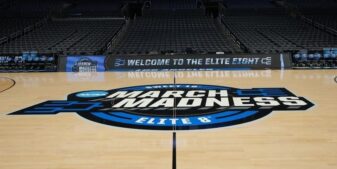The Public Health Advocacy Institute (PHAI) has issued a response to the National Collegiate Athletic Association (NCAA) for entering into an agreement with Genius Sports to sell real-time sports data to the gambling industry.
According to the PHAI’s news release, the Advocacy Institute researchers believe the NCAA is “placing money and profits over public health and the safety of student-athletes.”
The purpose of this deal is to enable the gambling industry to offer AI-driven micro-betting on college sports. The PHAI says micro-betting — wagering on specific moments within a game — “is among the most dangerous and addictive forms of online sports gambling.”
By using artificial intelligence, gambling companies are opening the door to betting opportunities for problem gamblers. The PHAI says the risk of gambling addiction and gambling-related harm will only increase.
Dr. Harry Levant, Director of Gambling Policy at PHAI, says the NCAA is misinformed when the Association claims that the sale of data will reduce the risks associated with prop betting.
“The NCAA has increased the risk of harm,” said Dr. Levant. “People will now wager on virtually everything that college players do in each game. To justify this, the NCAA claims the money from selling data will fund education programs.
“This is the equivalent of the tobacco industry offering the non-stop sale of cigarettes and then using the revenue to fund education programs. The justification offered by the NCAA is disingenuous at best.”
Mark Gottlieb, Executive Director of PHAI, added: “The NCAA, unfortunately, missed an opportunity to take a leadership position in the burgeoning movement to bring comprehensive public health reform to the gambling industry.
“The public health movement is focused on regulating gambling as an addictive product. Unfortunately, the NCAA chose to take gambling industry money, which will result in increased high-intensity micro-betting, with it, addiction, and serious harm to players, their families, and the public.”
PHAI Founder and President Richard Daynard also said: “The NCAA decided it would join the gambling industry rather than fight it. This collaboration with the gambling industry further demonstrates the need for a comprehensive public health response at both the federal and state levels.”
“At PHAI we will continue to take a leadership role and look to protect the public by advancing important public health measures to regulate the out-of-control gambling industry.”
Daynard, Gottlieb, and Levant also criticize the NCAA for ignoring the long-term consequences of the deal.
“The NCAA fails to tell the public that this deal with Genius also enriches the National Football League (NFL),” said Dr. Levant. “The NFL is a major shareholder in Genius. Repeatedly, we’ve seen the gambling industry and its sports and media partners prioritize profits over public health. This is why our work at PHAI is vitally important — and only just beginning.”
In December 2023, PHAI and its Center for Public Health Litigation filed a class action suit against DraftKings in Massachusetts. In August 2024, a judge in Massachusetts denied DraftKings’ motion to dismiss. As a result, this allowed the litigation to move forward.
